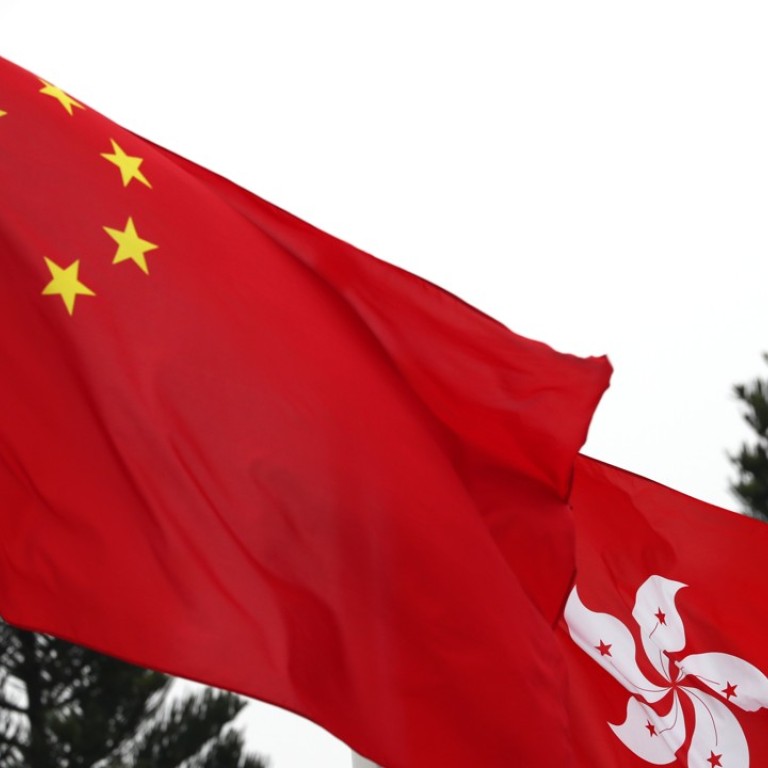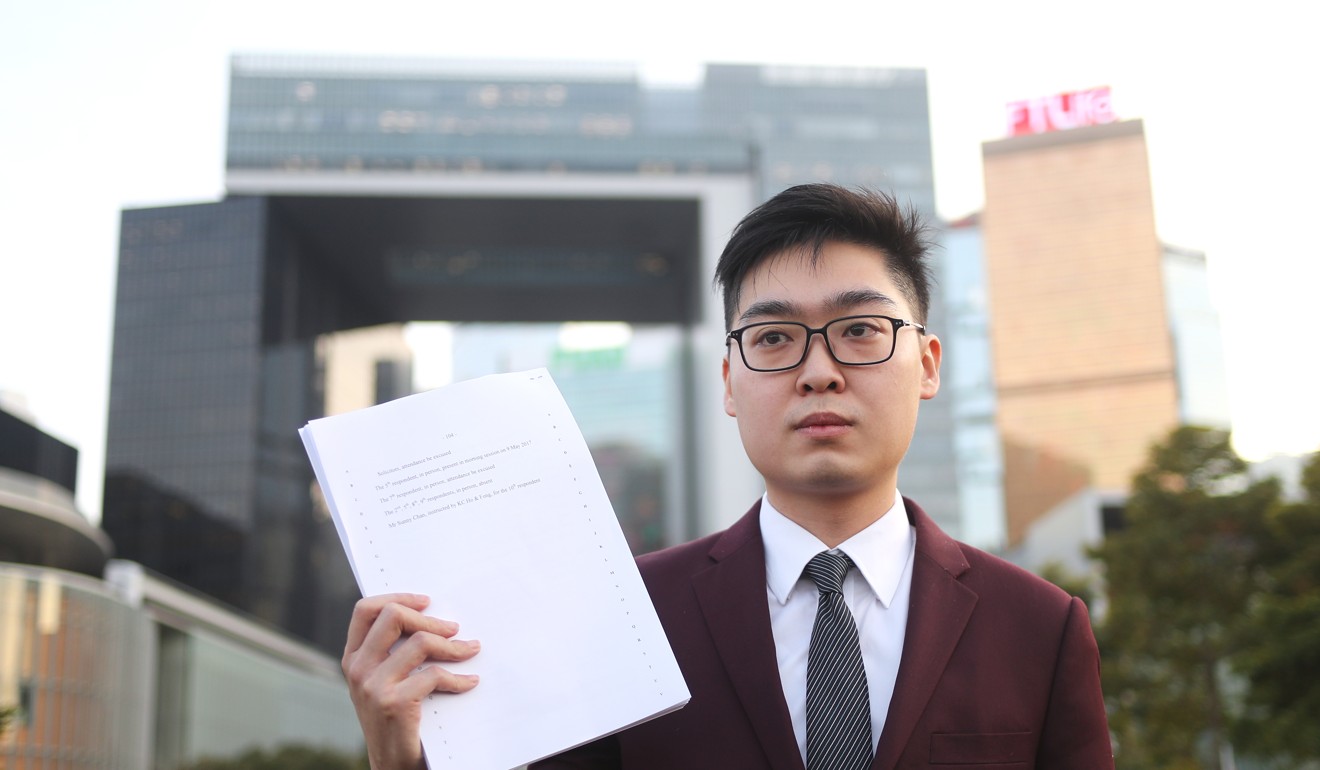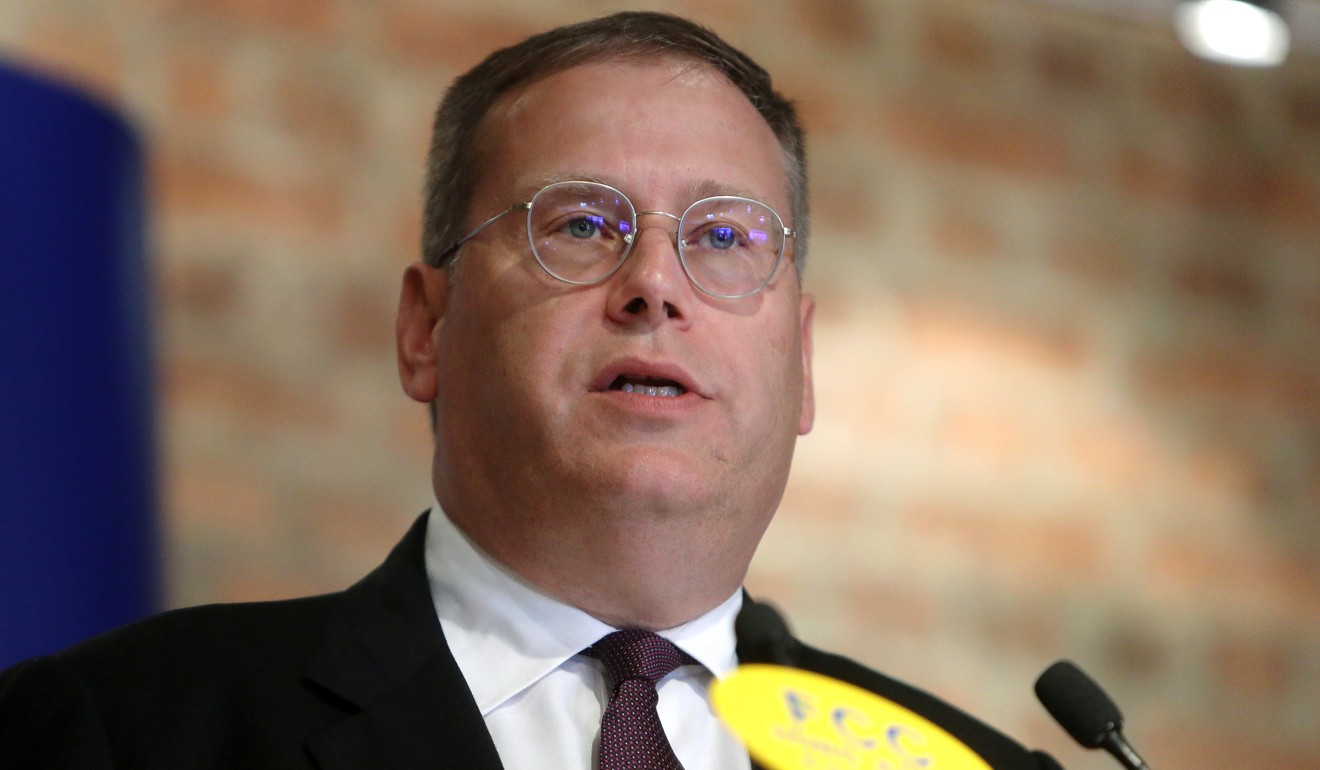
United States to ‘pursue cooperation’ with Hong Kong on trade, despite Congressional report urging rethink of ties
- The city is treated as a separate trading entity to China
- But expert review said ‘encroachment’ by Beijing on its rule of law and freedom of expression should change that
Washington has stressed it will “pursue cooperation” with Hong Kong on trade and economic policies, despite a Congressional expert report urging a rethink of the city's special trading status distinct from China.
The State Department said on Saturday that while it was aware of the report by the US-China Economic and Security Review Commission (USSC), the US recognised Hong Kong as a semi-autonomous city in China, governed by a separate system.
“The United States supports the principle of ‘one country, two systems’, and pursues cooperation with Hong Kong as a special administrative region of China, in keeping with the US-Hong Kong Policy Act”, a department spokesman said.
The city is treated as a separate trading entity under the act, which was passed in 1992 in preparation for Hong Kong’s return from British to Chinese rule five years later.
The department’s statement came amid a heated debate in Hong Kong on the USSC report and a possible shift in US trade policy towards the city.

It recommended that US lawmakers press the Department of Commerce and other departments to assess the country’s policy of exporting sensitive technology, “as it relates to the US treatment of Hong Kong and China as separate customs areas”.

US Consul General Kurt Tong on Friday did not specifically address whether the US government would subscribe to USSC’s recommendation. He said only that the administration looked forward to continuing conversations with the Hong Kong government about the ‘two systems’ framework, among other policy issues.
No one wins in trade war, Xi tells world leaders
A local government spokesman said in response to the US State Department’s comments on Saturday that Hong Kong and the US have “all along enjoyed close trade and economic relations”, with the city being the ninth-largest export market for the US.
Hong Kong is conferred a unique status under the Basic Law and one country, two systems policy as a separate customs territory, the spokesman added.
Some US lawmakers have previously proposed private bills to amend the policy act, including pushes for annual reviews of Hong Kong’s autonomy. Two bills tabled last year never passed.
The USSC has not responded to a request for comment.
International relations scholar Simon Shen Xuhui of the Chinese University of Hong Kong said the special treatment given to Hong Kong by the US was a “window” for American companies to invest in mainland China.
Will Hong Kong become less important to US? Maybe, says Congress report
“As long as the US still sees Hong Kong as a window to China, and Beijing does not abuse this by opening the floodgates to allow state-owned enterprises to operate in Hong Kong, the US trade policy towards Hong Kong is not likely to change in the short run,” Shen said.
“Unless the [US-China] trade war becomes entirely a zero-sum game in future, then there could be a fundamental change.”
The US trade policy towards Hong Kong is not likely to change in the short run
New People’s Party lawmaker Regina Ip Lau Suk-yee, also an adviser to Lam, said the USSC had always been aggressive in its annual reports but noted there was a “long way before the recommendation is translated to State Department policy”.
“US and Hong Kong have a long-standing cooperation with sensitive technology exported to Hong Kong,” Ip said. “They know our system.”
She added that human rights issues were only “one out of a range of factors” when the US considered its trade policy towards an economy.
Ip Kwok-him, another adviser to Lam, described the USSC report as “political campaigning”, but added that the US might suffer more if its export to Hong Kong was restricted.
Civic Party leader Alvin Yeung Ngok-kiu said while there was no real threat of Hong Kong’s special status with the US being revoked, the USSC recommendation was “unusual” and should not be taken lightly.
“The report was made under a bipartisan commission and it’s hard to tell if lawmakers would take the opportunity to use Hong Kong as a bargaining chip in the trade war,” Yeung said.
He added that the local government should work to address the international community’s concern and faithfully implement the two systems principle.

